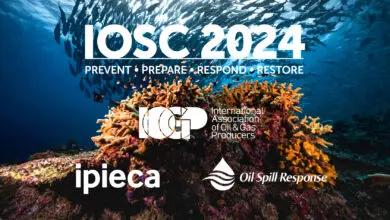
Project Safira: from data to action
Arab mathematicians translated the word śūnya (meaning “void, empty”) from Sanskrit as siׅ fr, to represent the numeral 0. Italian Mathematician Fibonnaci brought this to Europe, and through safira and zevero, it became the English ‘zero’. Now, with IOGP’s Project Safira, the original term has taken on a new meaning. It expresses the Association’s determination to put an end to upstream fatalities.
As Safety Committee Manager Mariana Carvalho explains: “In terms of safety objectives, most companies have ‘goal zero’, ‘do no harm’, or something similar – but in our heart of hearts, perhaps we have not always believed we could get there as a global industry. We want to make it happen, and that is why we have launched Project Safira. With the word Safira, we want to encourage a new way of thinking about our goal, and by running it as a project, we are committed to making it happen.”
Project Safira provides a single focus for four of IOGP’s current safety priorities:
- Process safety
- Aviation
- Land transportation
- Life-Saving Rules
“We selected the first three because those areas have been among the top causes of upstream fatalities during the past five years. The Life-Saving Rules tackle fatalities in activities such as working at height or confined space that we continue to see in our annual safety statistics. If over the past 10 years the revised 9 IOGP Life-Saving Rules had been followed, 376 lives may have been saved,” Mariana says.
Step by step
The impetus for Project Safira dates back to a review of 2015 fatalities compared to those in 2014. “We knew we had to do something to improve,” Mariana recalls. “IOGP’s Safety Committee had over the years produced a lot of good work, work that is helping the industry improve in safety, but we decided to simplify and focus our mission: to eliminate fatalities. But how?
“IOGP is fortunate in having Member Companies that voluntarily submit their safety data annually. It gives us a unique platform to understand industry-wide trends. Looking at the most recent 5-year period, (2011-2015), there had been on average 85 fatalities every year. But what if there had been no process safety events? Then we would have had 71 fatalities. And what if there had also not been any air transportation accidents? 61 fatalities. No vehicle crashes of workers being run over? 53 fatalities. And so on.
“This gave us the idea of a staircase. But instead of heading up to our aspiration, we wanted to head down, one step at a time, to a level where upstream fatalities don’t occur. Along the way, we will do what it takes to ensure we don’t backtrack. Nor will we miss any of the steps. And with each level of our descent, we’ll apply what we learned from previous steps – and share that knowledge widely so that we can move down, together, as an industry,” Mariana says.
As part of that effort, IOGP is widely promoting Project Safira among Association Members and beyond. Most recently, Mariana explained Project Safira objectives and achievements to the US Center for Offshore Safety’s Sixth Annual Forum in Houston, Texas on 19 September.
Her audience included offshore industry operators, drilling contractors, service/supply companies, academia and regulators.
Feedback was virtually instantaneous and highly positive. One attendee described her session as “awesome” and also gave credit to the contribution the Data Subcommittee and its chair, Kirsty Walker. Another described Mariana as “one of the best speakers on the panel”, with “a compelling message and a great call to action”.
Safira is gaining momentum as part of the shared commitment among IOGP member companies to end fatalities in the workplace.



